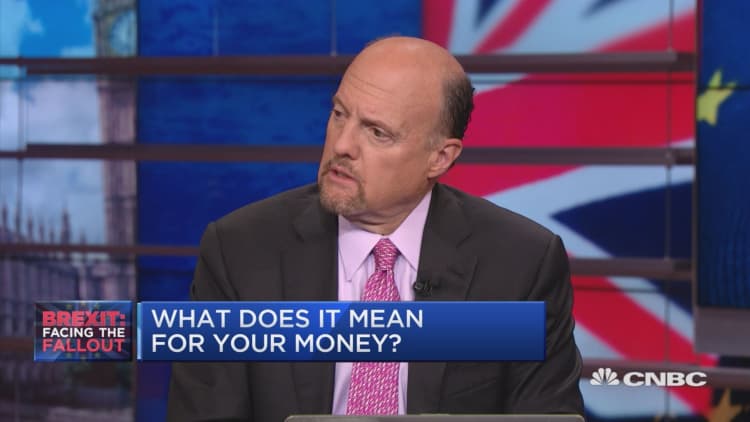The British pound fell to a 31-year low against the U.S. dollar on Monday on anxiety over the aftermath of Britain's decision to quit the European Union, while the euro also dipped.
Sterling hit $1.3151, its lowest level since mid-1985 and marking an 11.5 percent fall from the currency's closing level on June 23, the day of the referendum. Analysts predicted more downside for sterling as traders monitored the fallout of the vote and how it would affect the European economy.
Sterling was last down 3.6 percent at $1.3183, failing to recover despite British finance minister George Osborne's assurances that the economy was in good shape and that the government and Bank of England could implement further actions if needed.

The euro also remained weak, last down 0.9 percent at $1.1013 after hitting a session low of $1.0971. That session low remained slightly above Friday's 3-1/2 month low of $1.0909.
"By no means is the collapse of the cable over," said Boris Schlossberg, managing director of FX strategy at BK Asset Management in New York, referring to the sterling/dollar exchange rate. "The trade in the pound continues to be on the downside until the market gets some sort of resolution."
A likely fresh move for Scottish secession, and the response of the EU and its ability to contain calls by anti-EU parties across the continent, in part combined to make matters worse for sterling.
Analysts said sterling had further room to fall since markets were reluctant to act in response to the referendum vote and were in a "wait and see" mode ahead of reactions from European policymakers.
"This has such long-dated implications that investors are behaving somewhat cautiously," said Richard Cochinos, head of European G10 FX strategy in London.
"The markets are really watching the European reaction," he said, noting Tuesday's European Council summit in Brussels on Tuesday as one event that traders would likely watch closely.
The yen gained on safe-haven demand, though expectations that the Bank of Japan could intervene to halt the currency's rise limited its advance. The dollar was last down 0.22 percent against the , at 101.97, holding above Friday's more than 2-1/2 year low of just above 99 yen.
"Over the longer term, we think that diverging monetary policies between the Fed and the BoJ should enable USDJPY to recover toward 107. But we caution that the high volatility of the USDJPY pairing makes it unattractive to take a position in it for now," UBS said Monday in a note to clients.
The dollar index, which measures the greenback against a basket of six major currencies, was last up 1.06 percent at 96.45.

